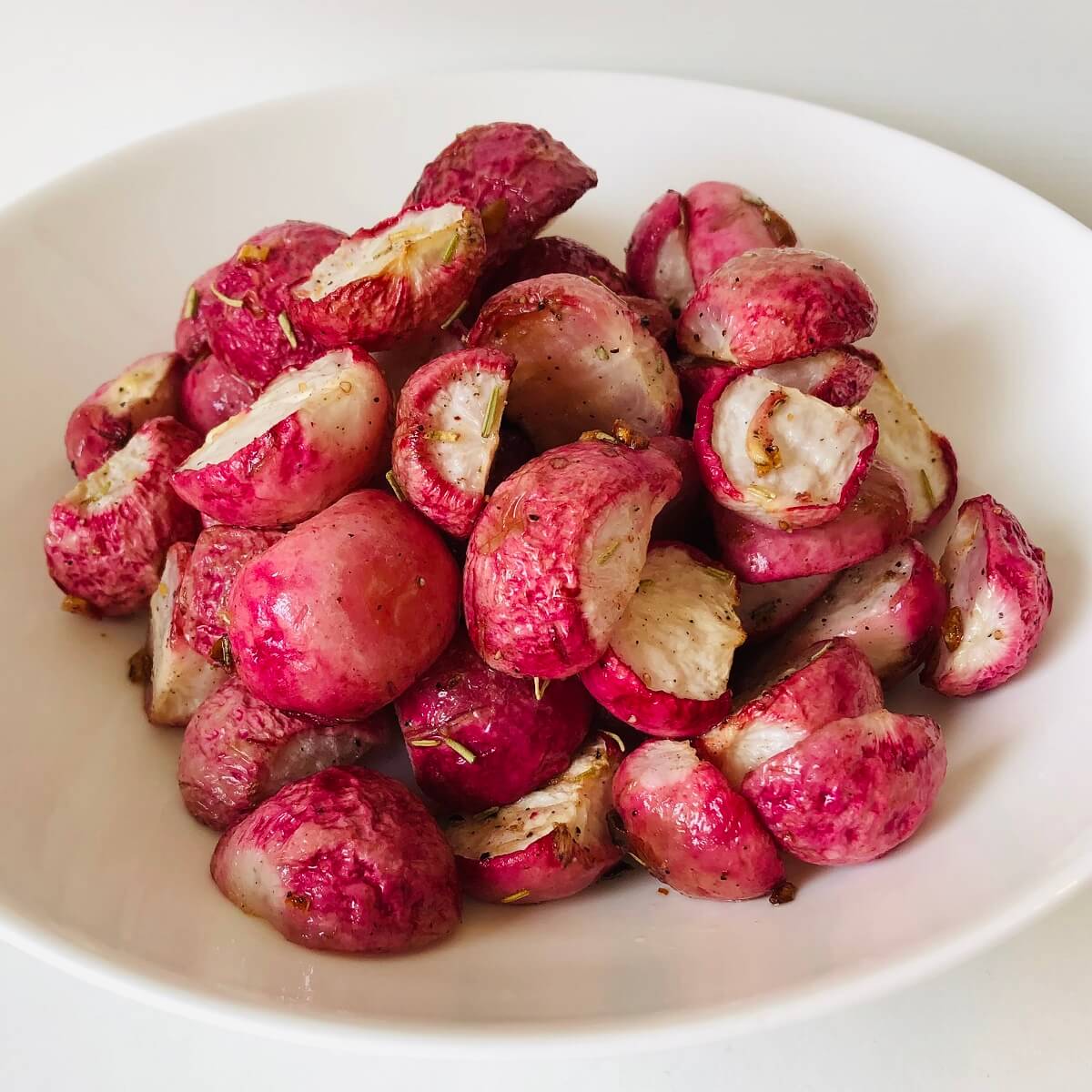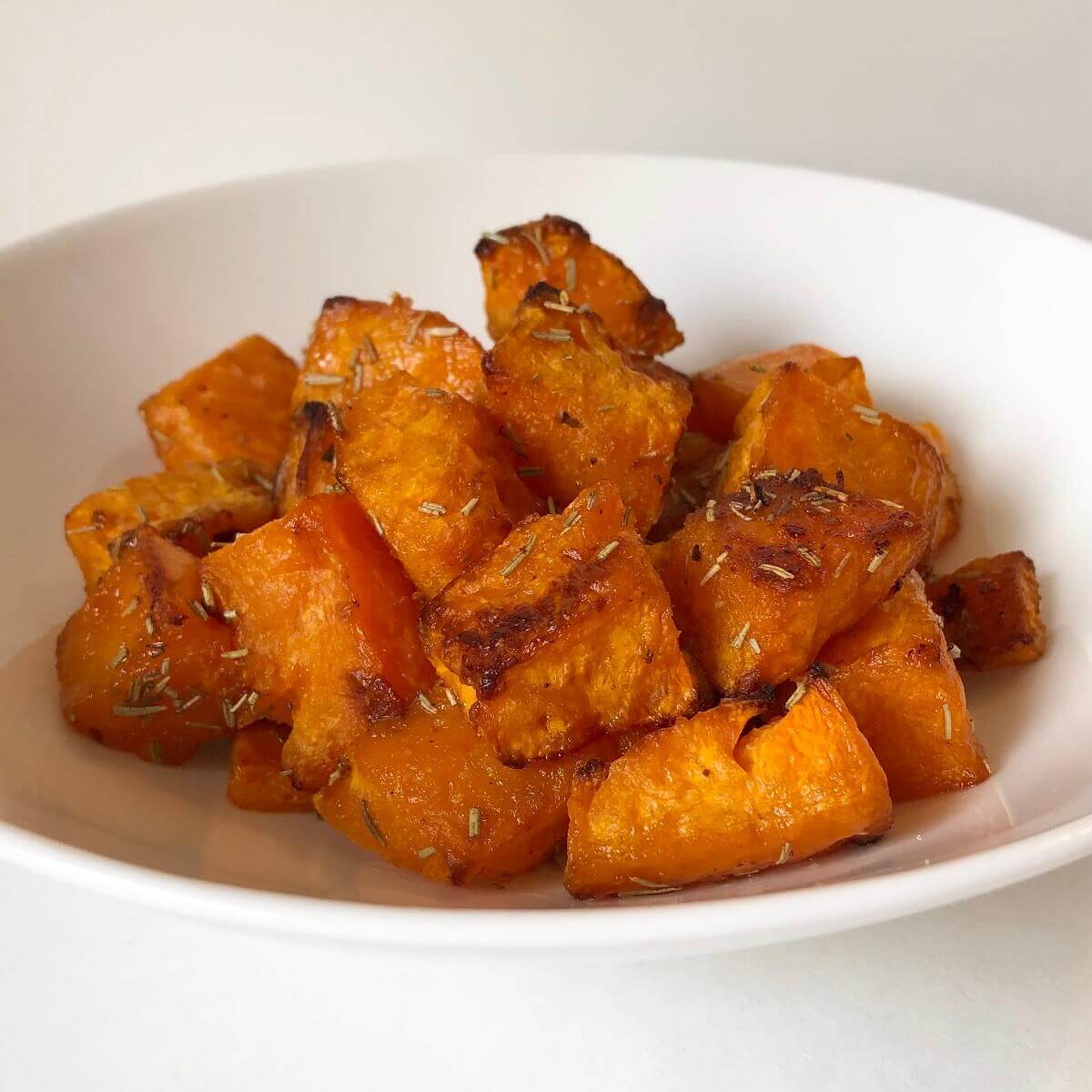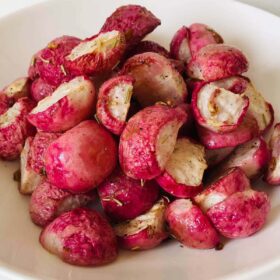If you’re looking for low-carb alternatives to potatoes, this list of my top picks for flavorful and nutritious potato substitutes has got you covered. These tasty veggies are low in carbs, high in fiber, and packed with vitamins and minerals:
1. Radishes

Radishes are a crunchy and flavorful root vegetable that make a great low-carb alternative to potatoes. I love their peppery taste and satisfying crunch. Radishes can be a satisfying addition to your meals while keeping your carb intake in check.
To prepare radishes as a low-carb substitute for roasted potatoes, wash and chop the radishes into bite-sized pieces, toss them with olive oil, salt, and your favorite seasonings, then roast them in the oven until they’re crispy and golden brown. For exact amounts and instructions, check out this easy recipe for garlic roasted radishes.
Radishes Carbohydrate Content
According to the USDA National Nutrient Database, cooked radishes contain 3.43 g of carbohydrates per 100g. For context, baked potatoes contain 21.6 g carbohydrates per 100g according to the same source.
2. Cauliflower
Cauliflower is one of my favorite low-carb potato substitutes. It can be used in a wide variety of recipes.
One of the reasons cauliflower works so well as a low-carb alternative to potatoes is its texture. When cooked and mashed, cauliflower has a similar creamy texture to potatoes, which makes it a great substitute for mashed potatoes.
Cauliflower Carbohydrate Content
According to the USDA National Nutrient Database, cooked cauliflower contains 4.11 g of carbohydrates per 100g.
3. Turnips
Turnips are another low-carb vegetable that can be used in place of potatoes. They have a slightly sweet, nutty flavor and a texture that’s similar to potatoes. Turnips can be used in a variety of recipes in place of potatoes. Mash them, roast them, or add them to soups and stews instead of potatoes.
Turnips Carbohydrate Content
According to the USDA National Nutrient Database, cooked turnips contain 5.06 g of carbohydrates per 100g.
4. Rutabaga
Rutabaga is a nutritious root vegetable that can be a tasty low-carb alternative to potatoes. It has a unique flavor that’s slightly sweet and nutty. Rutabaga is low in calories and high in fiber, vitamins, and minerals.
Rutabaga Carbohydrate Content
According to the USDA National Nutrient Database, cooked rutabaga contains 6.84 g of carbohydrates per 100g.
5. Jicama
Jicama is a crunchy, slightly sweet root vegetable that makes a great low-carb potato substitute. It can be sliced into “fries” or used in salads and slaws for a satisfying crunch.
Jicama Carbohydrate Content
According to the USDA National Nutrient Database, cooked jicama contains 8.82 g of carbohydrates per 100g.
6. Butternut Squash

While butternut squash is slightly higher in carbs than some of the other options on this list, it’s still one of my favorite potato substitutes.
You can roast butternut squash by cutting it into bite-sized pieces, tossing it with olive oil and seasonings, and roasting it in the oven until it’s caramelized and tender. Here’s a simple and delicious recipe for roasted butternut squash with rosemary.
Butternut Squash Carbohydrate Content
According to the USDA National Nutrient Database, cooked butternut squash contains 10.5 g of carbohydrates per 100g.
A Few More Options
In addition to radishes, cauliflower, turnips, rutabaga, jicama, and butternut squash, other low-carb potato substitutes include celery root (aka celeriac), kohlrabi, spaghetti squash, green plantains, and pumpkin.
You Might Also Like
- This guide to baking with Paleo flours is helpful if you’re looking for gluten-free, grain-free, wheat flour alternatives.
- This post about Paleo sweeteners is helpful if you’re trying to reduce your consumption of refined sugar.
- This collection of easy and delicious nutrient-dense recipes is perfect if you’re stuck in a cooking rut.
